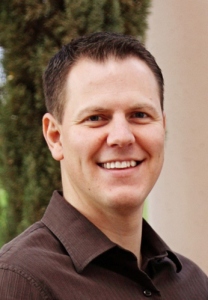 Imagine you are running late to work and you are frantically rushing out the door. As you’re hustling down the freeway trying not to speed (at least trying not to noticeably speed), you suddenly feel the car start to vibrate followed by a low juddering sound. You recognize that dreadful sound and realize that you have a flat tire at the most inconvenient time. You now have a decision to make, you can either pull to the side of the road and fix the tire, or you can press your luck and try to push on through and hopefully make it to work with minimal damage.
Imagine you are running late to work and you are frantically rushing out the door. As you’re hustling down the freeway trying not to speed (at least trying not to noticeably speed), you suddenly feel the car start to vibrate followed by a low juddering sound. You recognize that dreadful sound and realize that you have a flat tire at the most inconvenient time. You now have a decision to make, you can either pull to the side of the road and fix the tire, or you can press your luck and try to push on through and hopefully make it to work with minimal damage.
After reading the two choices you may be thinking that option two is quite absurd. Hopefully most people think that option two shouldn’t really be an option because of the likelihood that serious damage would occur. You recognize the importance of taking care of a problem when it is minor before it escalates – even when it is inconvenient.
Similarly with our kids, when we have a child who is struggling emotionally, or has an emotional flat tire figuratively, we can push on through and take care of what needs to get done and hope for minimal damage, or we can take the time to mend the emotional distress and get back on track. “But what if that makes me late” you might ask, or “I can’t stop everything every time my child gets upset.” This is understandable, however, most of the time we can stop and connect with our kids for a few moments when they are struggling and they need support.
If our lives are at the point where we can’t take the time to help our kids with transitions or help them organize their emotions, then we may need to evaluate our own lives and see if we need to adjust our time to fit our priorities so that we can be there for our kids when they need us. The more we take the time to provide support to our kids and help them organize their emotions, the more emotionally healthy and resilient they become. Rather than developing a sense of entitlement and emotional dependence which some parents worry will happen by providing this type of support, these kids develop a healthy sense of self-worth and emotional interdependence when this type of support and connection is provided correctly over time.
Thanks for reading

Shiloh Lundahl, LCSW, is a child and family therapist in Gilbert and Mesa, Arizona. He is the founder of Parent Arizona and Counseling Services and is part of the Arizona Family Therapy Group.
He works with couples on establishing safety and security within their relationship and helps couples understand and support each other. He also teaches parenting classes using the Love and Logic curriculum, classes for parents ofchildren with ADHD, step-parenting classes, and advanced trainings for foster and adoptive parents. He also provides in-home therapy in Gilbert, Mesa, Queen Creek, San Tan Valley, Chandler, and Tempe, Arizona.
